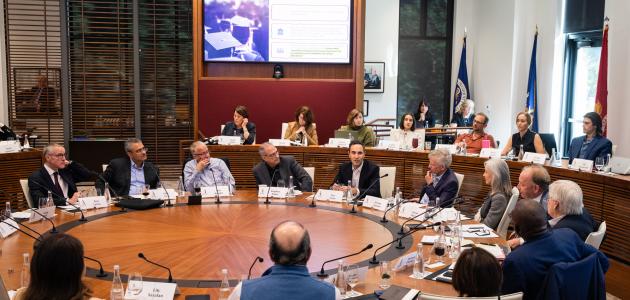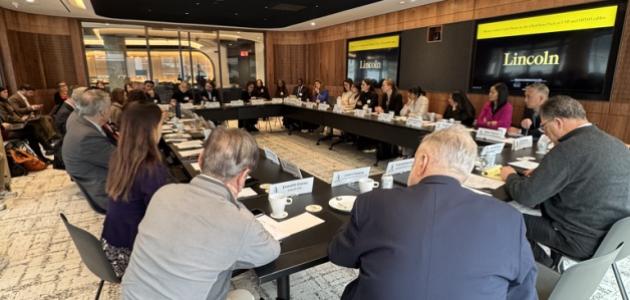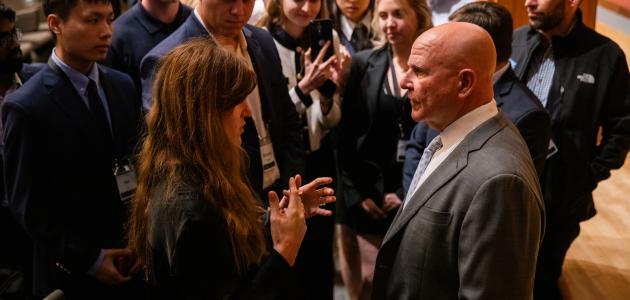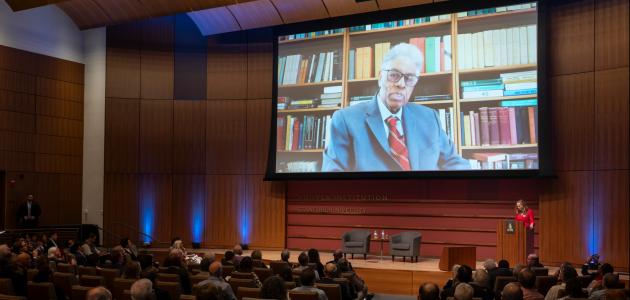By Michael D. Aguirre
From August 24 through September 8, 2017, I researched the Victor V. Veysey Papers. Because the collection is unprocessed, I attempted to go through as many boxes as possible and managed to open 88 boxes. I specifically looked for material related to my dissertation, which focuses on the political economy and labor in the Imperial Valley, California and Mexicali, Baja California, Mexico between the years 1964-1979. Veysey is a key figure in the Imperial Valley and I sought to understand his political, labor, and economic visions of/for the Imperial Valley. One of the pitfalls of researching Veysey is that his collection is unprocessed, yet this was also an unforeseen opportunity to understand Veysey as a person. That is, the lack of a finding aid prevented me from searching for a singular theme or event and end my research there. Instead, I was placed in a position where I excavated Veysey’s archive to learn who he was at a much deeper level. This unforeseen familiarity is what drives historians.
Thematically, the Veysey Papers focus on legislation that touches on energy policy (especially geothermal power), education, air pollution, welfare, labor (namely agricultural), agriculture policy, and his voting record in Congress. There is an ample collection of correspondence with constituents, mostly from the Inland Empire, showing Veysey’s responsiveness, attention to detail, as well as those who believed had access to the Congressman. Temporally, I estimate that approximately three-fifths of his collection revolves around his short time in Congress (1971-1974).
For my research and dissertation purposes, I was able to unpack Veysey and understand his position on many issues. As a policymaker, academic, and grower, his voice carried more weight than others. Veysey was a fiscal conservative who often presented his opposition to War on Poverty programs and wage increases as contributions to inflation and poor economic planning by the federal government. Veysey was in a complex relationship with the federal government since, on the one hand, he championed California’s state’s right to pass rigorous clean air legislation that went beyond the Environmental Protection Agency’s requirements (Box 12, Folder-Friends of Victor Veysey). On the other hand, he fought to limit the amount of funds and projects by the Office of Economic Opportunity (Box 9, Book: 93rd Congress, 1st Session), establish oversight and regulations for the OEO in 1971 (Box 79, Folder- Veysey Amendment to OEO Bill), voting to end the OEO in 1972 (Box 9, Book-92nd Congress, 2nd Session), classifying the Child Development Act as a potential “waste of money” (Box 50, Folder-Correspondence, Blue Folder 68), and accepting OEO funds “to boost health and education programs for 25,200 low income residents” in the Imperial Valley (Box 5, Folder-Press Releases, 1972).
Veysey was also concerned with agriculture economic policy and labor relations. He favored extensions of the Sugar Act in 1971 and 1974 (Box 9, Folder-92nd Congress, 1st Session, Vol. 1; Box 45, Folder-Personal Correspondence), where the Imperial Valley was a major producer of sugar beets; this was the crop Veysey cultivated in the Imperial Valley. Veysey pushed legislation that sought to regulate farm labor contractors, whom farmworkers often viewed as part of the system that robbed them of wages and a voice in collective bargaining, and favored unemployment insurance for farmworkers (Box 30, Folder-AB 168 Farm Labor, Jan- Sept, 1970; Box 30, Folder-AB 210: U-I Farm Workers). Importantly, organized labor including the Teamsters and church groups opposed Veysey’s legislation that sought unemployment insurance and secret ballot for union votes. Veysey understood his legislation as objective and the contending groups saw it as subjective. A major point of contention between Veysey, the OEO, and farmworkers was with an OEO-funded migrant clinic in Brawley, which is the subject of my fifth chapter.



















